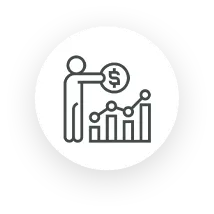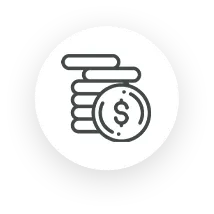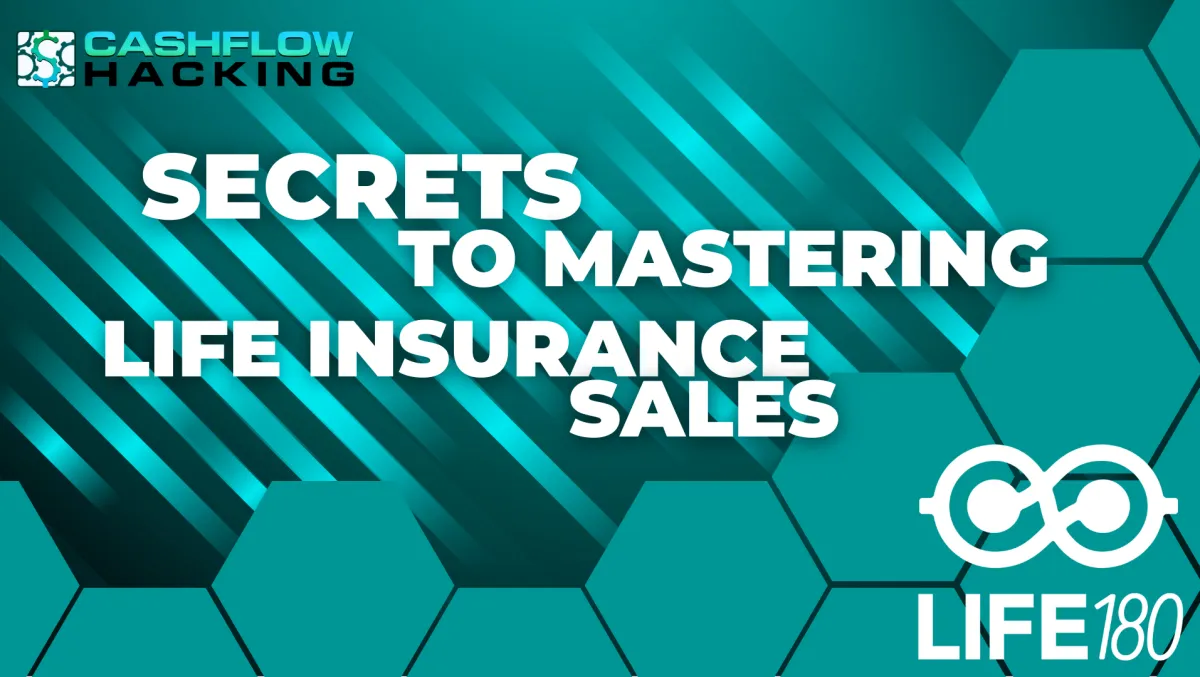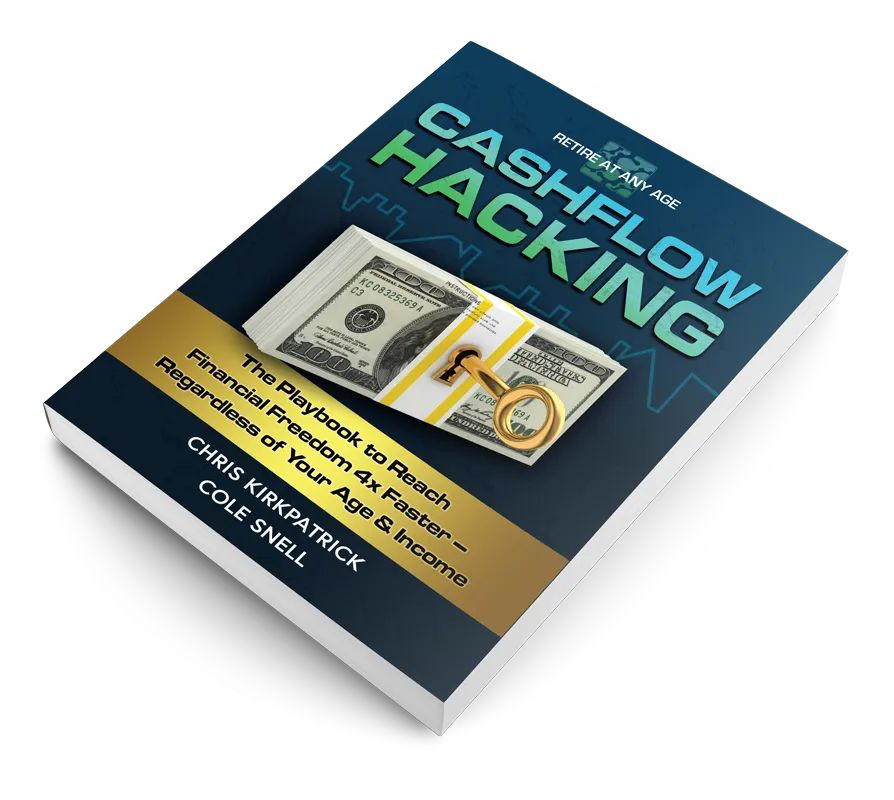
Simplifying Financial Confusion
LEARN CASH FLOW HACKING TO REACH FINANCIAL FREEDOM
Used by 90% of millionaires to reach their financial goals 4x faster

Achieve Financial Freedom Through Cash Flow Hacking

Increase Your Lifestyle While You Build Your Wealth

Position Yourself to Thrive in Market Downturn
YOU SHOULD NOT FEEL OUT OF CONTROL ABOUT YOUR FINANCIAL STRATEGY

Have easy access to your money in case of emergencies and opportunities

Use the investment strategy 90% of millionaires use

You deserve a clear plan to consistently grow your money and avoid market uncertainty

Have a guide and advisor that has your best interest in mind

Do not overpay in taxes

Stop guessing at the best vehicles to protect and grow your money

Secrets to Mastering Life Insurance Sales
This article serves as a written adaptation of the video content accessible on my YouTube channel LIFE180.
What is important to you? Where are your emotional priorities right now? Are you contemplating strategies to eliminate debt? Or perhaps, are you considering the importance of saving money and the necessity of establishing an emergency fund?
Perhaps you've already achieved success, or maybe you're in the process of building a business. You might even be a real estate investor, or simply someone seeking to elevate their life to the next level after discovering this concept.
But under no circumstances should life insurance be presented as an investment. Life insurance does not qualify as an investment. Our primary objective is to assist you in establishing your emergency fund. However, it is crucial to understand that our foremost responsibility is to aid individuals in constructing their financial groundwork and safeguarding their families.
Throughout my articles and videos, I consistently emphasize the significance of exploring life insurance through thoughtful questioning. By seeking clarity on various aspects, such as their beliefs about its cost, role, and necessity, we aim to deepen our understanding of their perspective.
What Problems In Your Financial Life Are You Trying To Solve?
In this article, we'll explore these questions in depth and delve into the various problems that life insurance can address even while you're alive. I believe this is where its significant value truly lies. Our primary aim is not merely to sell life insurance but rather to assist individuals in resolving their challenges.
When we aim to assist them in problem-solving, it boils down to understanding their emotional priorities and connections. My primary objective in every conversation is to assess what matters to you most and where your emotional focus lies. Are you primarily focused on getting out of debt? Is debt elimination your main concern? Or perhaps, are you focused on saving money and the necessity of building an emergency fund? Many individuals prioritize these financial goals.
Alternatively, perhaps you're already fulfilled in those domains? Whether you've attained success, are actively building a business, or engaged in real estate investments with aspirations to elevate your life. If you've recently stumbled upon this concept and are eager to employ a financial tool that offers secure leverage, enabling each dollar to serve multiple functions, then this discussion may be particularly pertinent to you.
You're eager to enhance your investment skills, seeking ways to grow your wealth and implement effective growth strategies. I approach this with the understanding that we need to begin by addressing foundational aspects, such as debt elimination and boosting cash flow, to pave the way for successful investment endeavors.
Okay, that's one aspect. Maybe they're also focused on saving money, and maybe they're even striving to create wealth. We can't discuss wealth creation with people who are still struggling financially. For instance, they might say, “That sounds great, Chris, but I'd love to build wealth. However, I'm dealing with $30,000 in credit card debt, and all my available cash flow is going towards paying the high interest on my 22% credit cards.”
At this juncture, many individuals find themselves in such circumstances. A significant mistake that life insurance agents often make with their clients is failing to meet them where they are and address the actual problems they are facing. It's essential to communicate with clients and prospects at their level, understanding and resolving the challenges they are currently encountering.
Similar to any other interaction, our approach should prioritize understanding before seeking to be understood. It's crucial that this isn't merely about selling our products and solutions, as that would make it solely about us. Instead, our focus should be on understanding their current situation through a series of questions. We need to grasp what's on their mind, identify their concerns, whether it's debt, saving money, or striving to create value and build wealth.
Once you have clarity on their situation, you can communicate with them from a position of authority based on their current circumstances. When they share their concerns with you, it also serves as implicit permission to engage in a conversation about that particular topic.
If they're aiming to eliminate debt, that's your cue to engage in a discussion about their current strategies for debt reduction. If they're facing challenges in this area, you can offer potential solutions and have a deeply connected conversation. This approach not only enhances your rapport with them but also demonstrates your commitment to serving their needs.
With all that being said, now that we understand the importance of determining their emotional focus, whether it's debt, saving, or wealth creation, we can proceed accordingly. And of course, as discussed previously, we want to begin with the life insurance aspect.
Once we have addressed the basics, our aim is to elevate the conversation to the next level. With that in mind, here are some questions and topics that I believe can enhance your ability to connect with people, elevate the discussions, and underscore the relevance of life insurance in their minds.
How Whole Life Insurance Aligns Your Money With Your Values & Beliefs
All right, so the initial inquiry I make is more of a conversation starter than a direct question. I often emphasize on this channel that the primary reason for people's financial struggles is the misalignment of their money with their values and beliefs.
So, when considering this perspective, one of the key points I consistently emphasize when meeting or speaking with individuals, whether over the phone or in person, is my passion for assisting people in aligning their money with their values and beliefs.
Now, while life insurance certainly plays a crucial role, the underlying principle is that it opens the door for a values-based conversation. I firmly believe that every life insurance agent should articulate their belief statements, explaining why they consider their work so vital and how they can positively impact others.
Even more straightforwardly, when we examine it from the viewpoint of values and beliefs, this becomes a compelling conversation. Consider this: the majority of people in this country, particularly in the United States, invest their money in retirement accounts such as 401(k)s, IRAs, and other qualified plans like TSPs, 457s, and 403(b)s.
But the fact remains, with almost $30 trillion held in qualified plans in this country, it's evident that this is where the majority of retirement savings are currently located. The challenge arises when you engage in conversations and are asked about your profession. This presents an excellent opportunity to seamlessly incorporate your passion into any sales or meeting conversation. At some point, people will inquire about your motivations, providing an ideal segue to discuss why you do what you do.
My response typically revolves around my passion for helping individuals align their financial decisions with their values and beliefs. This often prompts curiosity, with people asking for further clarification. I might then ask them questions such as:
"What are your thoughts on the current state of government? Do you have long-term trust in it?" or "How do you perceive the trajectory of debt? Do you anticipate it continuing to rise, or do you foresee potential solutions to address the $33 trillion debt and $4.5 trillion deficit, with debt increasing by over 10% annually amid a backdrop of rising inflation and interest rates?"
I also delve into discussions about tax rates, considering the current historically low levels and potential future directions. Through these conversations, we establish a connection based on shared values and concerns.
We're not discussing life insurance. We're not even discussing their money. We're simply talking about what's happening in the world. Because make no mistake, most people struggle to stay within their own little bubble. They're bombarded by the media wherever they go, on their phones, for instance. Every time I check my phone, I receive Google feed updates about conflicts like the one between Israel and Hamas, along with various other global issues, including economic problems.
We are inundated from all directions with news about the world's problems. It's difficult to maintain focus on what we can control and stay within our own bubble. Given the constant bombardment of information, people inevitably contemplate these issues. They may lean towards one of two perspectives, reflecting the polarization of our current world. Some might dismiss it all as nonsense and praise figures like Hillary Clinton and Joe Biden, while others hold differing opinions, including myself.
I'm not here to judge anyone, but if someone expresses admiration for figures like Joe Biden, Hillary Clinton, or Bernie Sanders, I understand that they may not align with my values or perspectives. It allows me to gauge whether we're a good fit to work together, saving both parties time and potential frustration. Of course, I'm not quick to dismiss someone solely based on their political views, but it does provide insight into potential compatibility.
But I'll certainly delve deeper. Alright, if you believe that, what are your thoughts on the future of taxes? How about the future of debt? What do you think the prospects are and how do you anticipate they'll impact you? Where do you see the future of our economy heading?
When you prompt people to deeply contemplate those questions, it opens the door to discuss the implications. For instance, if you believe taxes will rise and deficits will worsen, and debt will spiral further out of control, without even touching upon unfunded liabilities, there's much to consider.
So, these are all valid concerns for you. However, let's consider this scenario as if I'm speaking to you as a prospect. The challenge I see here is that you've just expressed your worries, and let's assume that's the case. You've mentioned that all your retirement savings are in IRAs and 401(k)s.
Now, what you may not realize is that there's a significant misalignment between your actions and your values and beliefs. You've expressed concerns about potential risks in the future, but did you know that everything you're doing with your money is exposing you to the very risks you fear? They might respond with, “I didn't know that.”
In fact, by guiding them through this process and conversation, you essentially obtained their permission to delve deeper into the topic. Now, you can discuss how to align their money with their values and beliefs. This is where we begin exploring various ways that life insurance can address these concerns.
Now, one of the key points I want to emphasize here is that you should never, under any circumstances, promote life insurance as an investment. Life insurance does not function as an investment vehicle. It does not carry the same risk profile as traditional investments. In a whole life policy, for instance, you cannot lose money. Therefore, I strongly advise against selling indexed universal life (IUL) policies and reiterate that you cannot lose money in a whole life policy.
Actually, when whole life is sold correctly, it's never positioned as an investment. Instead, it's presented as a savings alternative. From this perspective, if we view it as a savings alternative, it ties back to our earlier conversation about aligning your money with your values and beliefs. If you've ensured that your money is aligned in this way, it brings us to the question: What does this alignment mean for you?
“What does that look like? How do you do that? How are you going to help me get my money in alignment with my values and beliefs?" they might ask. To which I'll respond, "I believe that financial structure is more important than chasing high rates of return." This will likely pique their interest, prompting them to inquire further.
I'll continue by explaining, The bottom line is, the market is cyclical. It goes up, it comes down; it's a cycle. If you don't have your financial foundation built, you're not an investor, you're just a speculator. It might feel like you're succeeding, but unfortunately, one or two bad years could derail your entire life. Losing your job without an emergency fund can be particularly challenging. Would you agree? They're likely to respond, "Yes, that sounds fair."
Then, let me ask you, do you believe that having an emergency fund is important? They're likely to respond affirmatively. However, trust me, I have always maintained the belief in never asking questions that you don't know the answer to. You need to research this thoroughly and genuinely believe in what you're doing and where you're guiding and influencing these persons.
Whole Life Insurance Is The Best Emergency Fund
If I ask you, “Do you believe you need an emergency fund?” chances are you'll say yes. And I expect this response because it's a widely accepted notion; having an emergency fund is seen as responsible financial behavior. If someone doesn't have one, it's often viewed as irresponsible. So, most people will agree that they need an emergency fund. Then, I'll inquire further, “That's great. How much do you think people should have?” And they'll likely suggest six months worth of expenses, mainly because Dave Ramsey has effectively promoted this guideline.
Now, I would argue and suggest that you need at least a year's worth of emergency funds. However, I won't delve into that just yet in this conversation because my goal is not to impose my beliefs on you. I'm still seeking to understand their perspective. So, you believe that you need six months of an emergency fund. Is that correct?
When I ask how much of an emergency fund you have, the response is often “not enough.” When I follow up with “how much is not enough?” The answers vary, some say “nothing,” while others might mention “two months,” “three months,” or “one month.” Regardless, there's typically a gap between what they have and what they believe they need. This is where our conversation becomes crucial.
Our primary objective is to assist you in building your emergency fund because true financial stability requires it. It's a fundamental aspect. I also focus on teaching strategies to make each dollar in your emergency fund serve multiple purposes. As we navigate this process, questions about where to keep your emergency fund may arise. If you acknowledge the need for an emergency fund, it's likely you have other responsibilities, such as family or business partners, that further emphasize its importance. This opens the door to exploring various alternatives.
It's not fair to compare life insurance to an investment. If I compare life insurance with a 4.5% rate of return long term to an investment in the S&P 500, where everyone expects a 10% return long term, why would anyone choose 4.5% over 10%? That's a challenging conversation. I would argue that you need to prioritize saving at 4.5% before considering the 10% risk, as building that foundation is essential. But once again, it's a difficult conversation.
If we start with the notion that you need an emergency fund, the next question is: where would you save that emergency fund? Some might suggest a savings account, bonds, or CDs. However, it's important to remember that emergency funds need to be liquid, so a bank is likely the best option. Currently, a high-yield savings account is probably the most suitable choice. Now, let's consider an alternative: what if you put your money into a properly designed whole life insurance contract?
When we compare, yes, there may be a slight decrease in liquidity in the short term, but consider all the benefits: the living benefits, the life insurance coverage, and more. Also, look at the long-term benefits, such as the cash value growth in the savings account. So, now, when you have this trifecta, living benefits, death benefit, and better performance, while maintaining similar liquidity to a money market account, using life insurance as an emergency fund becomes the ultimate no-brainer. And that's the key takeaway here.
If you want to truly make a significant impact on people's lives and help them structure their lives in a way that aligns with their values and beliefs, bringing them peace of mind and providing financial structure that addresses their needs is essential.
Remember, there are no shortcuts. The issue I have with those selling IULs is the oversimplified narrative: "Replace your 401k with this," implying that shifting from investment A to investment B will miraculously solve your problems. The truth is quite different. Firstly, IULs often entail more risk than commonly conveyed. Moreover, they fail to address the underlying issue of financial structure, which is crucial for repairing our country's financial landscape.
What Is The 4% Rule?
So, once we establish the required savings and emergency fund amount, and we've discussed their desired life insurance coverage, we can delve deeper. We consider how much life insurance is actually necessary according to the 4% rule. If they're unfamiliar with the 4% rule, it's essential to inquire.
"How much do you understand about the 4% rule? Could you explain to me what the 4% rule is?" If they indicate they're not familiar with it, you'll need to explain. The 4% rule essentially suggests that you can withdraw 4% of your account's value annually without significant risk of depleting your funds during your lifetime.
That being said, a million-dollar death benefit can potentially provide $40,000 a year of income, not on a guaranteed basis, but you can structure it to be as close to guaranteed as possible. So, when you consider it from this angle, the 4% rule allows us to reverse-engineer our plan to achieve our income planning goals.
If you earn $100,000 a year, you would need $2.5 million to replace that income. It's as straightforward as that. With the 4% rule, $2.5 million would generate $100,000 of income annually. To ensure your family is well taken care of, you must reverse engineer your plan accordingly. Often, individuals aim for a lump sum payout equivalent to 10 years of income, such as obtaining a $1 million insurance policy to cover their family for a decade.
But personally, I find that approach lacking. If that's aligned with your values and beliefs, then fair enough. However, it's crucial to make an informed decision and understand that you're only providing temporary support for your spouse and children. As a husband, as a man, as a father, I believe my responsibility extends beyond my lifetime. It's about ensuring that my family's well-being is secure, regardless of whether I'm present to witness it.
By acquiring the appropriate insurance coverage to meet the guaranteed obligations I have for life and to take care of my family, I'm aligning with my values and beliefs. For me, it's about educating individuals on how this process works and ensuring they understand the importance of securing their family's future.
Will You Be Able To Retire On A Guaranteed Basis Doing What You Are Currently Doing?
Now, moving on to the final section, let's delve into actual planning. We've covered the significance of savings and the potential need to increase cash flow, although we won't explore that further in this article. Sometimes, individuals simply require more cash flow. However, our focus now shifts to retirement planning and attaining clarity in this regard. I strongly advocate for the belief that anything measured improves.
People need to understand where their money is, so one of the questions I ask every single person I talk to is: Are you aware of what you're currently doing? Do you know what rate of return your money needs to earn on a guaranteed basis to ensure you can retire when you want and maintain your standard of living for the rest of your life? Let me tell you, I've asked that question to over a thousand people.
I believe I've encountered only one person in my life who confidently responded with a 'yes' to that question, and indeed, they did. The challenge lies in the fact that while we need to be aware of our savings and our expected returns, there are other variables that we must consider, far beyond just returns.
Factors such as inflation significantly impact the purchasing power of our money, thereby influencing our lifestyle. Hence, there are various risks and factors that come into play in this equation.
Do you have a comprehensive understanding of all these different factors that influence your financial strategy and determine what you need, with all these variables considered, to maintain the lifestyle you desire throughout your retirement? The reality is, nobody knows the definitive answer to that question.
If nobody knows the answer, then it indicates a broken system. So, what can we do to assist individuals in navigating this complexity? The reason I pose these four questions in this manner is to guide people through a process that prompts them to deeply contemplate the challenges ahead. It's about making them realize, "Houston, we've got a problem." That's the first question.
The second question is: If you're unsure about the rate of return needed to guarantee your standard of living throughout your retirement, do you know how much additional money you need to save now to ensure that standard of living for the rest of your life? The reality is, nobody knows the answer to that either. It's somewhat of a trap question, to be honest, because if they're uncertain about the rate of return needed, they're unlikely to know the answer to this question. However, the intention isn't to trap them; it's to encourage them to think on a deeper level.
The subsequent question following the ones about the rate of return and savings is: Do you have an estimate of how much longer you'll need to work based on your current trajectory? If your plan is to retire at 65, do you know when you'll realistically be able to retire? If you reach 65 and find that your financial plan hasn't brought you to where you intended to be, how much longer will you need to continue working with your current assumptions? This question highlights the reality that many individuals reach 65 and find themselves unable to work.
What would be the outcome if your plan for financial freedom and retirement didn't materialize by the time you reach 65, and then you encounter a medical condition that prevents you from working, or you're unable to continue your current job due to unforeseen circumstances such as layoffs or downsizing? Have you considered how much you would need to decrease your standard of living by? Do you have an estimate of the percentage by which you would need to reduce your standard of living upon retirement?
It's crucial for people to understand that financial efficiency and adept money management during our working years are among the most critical aspects of securing our future. The beauty of it all is that as a life insurance agent, you possess the capability to not only assist individuals in addressing the need to safeguard their families, which I consider our primary responsibility.
But beyond that, we can also delve into assisting individuals with enhancing their financial efficiency. We can aid them in building their emergency savings, establishing an opportunity fund, and laying down the groundwork for their financial stability.
It's important to recognize that while we can provide valuable guidance and support, ultimately, it's up to individuals to take action and pursue avenues such as entrepreneurship, real estate investment, or stock investing to achieve greater wealth.
Our role as life insurance agents is not to instruct individuals on how to amass enormous wealth. Instead, we focus on empowering them to construct solid foundations that increase their likelihood of success in building substantial wealth through other avenues.
Now, personally, I engage in various ventures such as real estate investment funds and other real estate opportunities. As an agent, expanding your network and connecting people with investment opportunities can significantly enhance the value you offer. This allows for more elevated conversations, improving the quality of your business and the individuals you serve.
From that standpoint, it's excellent, but let's be clear, our primary responsibility is to assist individuals in constructing their financial groundwork and safeguarding their families.
So, hopefully, this article on how to ask questions about life insurance and then engage in deeper conversations about the various issues that life insurance addresses has been valuable to you. It's our hope that it has enriched your practice and prompted you to consider things from a different perspective.
If this content has provided value to you, please consider visiting my YouTube channel LIFE180, where you'll find more information related to the topics discussed in this article. Subscribe and turn on notifications to ensure you don't miss any of my videos.
Till next time, have a blessed, inspirational day.
HOW TO START TAKING CONTROL OF YOUR FINANCES BY MAXIMIZING YOUR CASH FLOW AND PROTECTING YOUR ASSETS

1. Schedule Your Free Clarity Call

2. Create a Free Customized Plan

3. Get Guide to Financial Success
GET YOUR FREE COPY TO STOP USING OUTDATED RETIREMENT STRATEGIES
Cash Flow Hacking teaches you to:
Protect Your Investments
Thrive in bad markets
Reach financial freedom faster

ARE YOU LOOKING FOR:

Cash Flow Hacking teaches you to:
Security to protect your money
Increased cash flow and lifestyle
Inflation protection
Financial certainty in all economic environments
A reduction in taxes
Safe and fast access to your money with no penalties
WHO IS THIS PROGRAM FOR?

People looking for an alternative
Are you looking for alternatives to Wall Street’s “buy and hold” strategy that takes 40 years with uncertain results? Our Cash Flow Hacking strategies provide you the building blocks to get started on the right foot

Passionate Entrepreneurs
Are you looking for a financial strategy that will take your best assets (you and your businesses) and multiply their potential? Our Cash Flow hacking strategies will teach you how to invest for the future without sacrificing building your business

Real Estate
Investors
Are you a real estate investor who is burned out from being a landlord or playing the fix-and-flip game? Our Cash Flow Hacking strategies will provide you with the system to create predictable wealth AND give you the freedom you are looking for.
YOU DESERVE PEACE OF MIND AND A PLAN THAT WILL PROTECT YOUR FAMILY AND GROW YOUR WEALTH
Today you need to be more savvy than ever if you try to go at it alone.
Losing money to inflation, taxes, and just poor investment strategies is leaving you frustrated, feeling out of control and not knowing where to turn. To add to the problem, the market is flooded with advisors who have outdated advice that does not place your best interests first, but instead focuses on charging you a fee that creates guaranteed cash flow for them.
NOT YOU
We believe this is wrong and that your security and best interests should be placed first. We believe you should be in a position where you control your money, your money doesn't control you. We understand because we talk with hardworking people everyday that are losing money in the markets based on old information and feel like they are guessing at the best course of action.
We created the Cash Flow Hacking plan to help you have security and control of your money to take advantage of life's opportunities because you deserve peace of mind with your wealth. The old way of planning for retirement of… Go to school Get a job & save as much as you can in your 401k and mutual funds...is broken.
You have been lied to. Think about it, where else in life does someone tell you that the most certain way to achieve your desired result is to take on more risk? The math just doesn't work, and the results are showing in our country and world. Did you know that 90% of millionaires in the United States have 1 asset in common?
Hint: it's not stocks or mutual funds (and no...it's not crypto) How much sense does it make for you to work hard, save money, reduce your current lifestyle (because that's what you are doing when you save for the future - taking money you could use on lifestyle today and delaying gratification to a future unknown time), and hope that whatever you are doing will work three to four decades from now? If you're thinking, "not much sense at all…", you are in the right place.
With over 50 years of experience on our team, we have worked with thousands of individuals and families to achieve financial freedom faster and with more predictability by helping them invest for Cash Flow.
How does the Cash Flow Hacking Plan work? 1. Take the Cash Flow Hacking Challenge 2. Complete the LIFE180 X-Ray and determine what your Freedom Number is 3. Work with a Cash Flow Hacking expert to provide you a customized plan
The customized Cash Flow Hacking plan will give you clarity on where you are now, where you want to go (and in what time frame), and what you need to do to get there predictably.
We value and commit to you: We believe you deserve the best financial education and guidance We believe financial decisions should not be rushed but be well thought out with a plan We believe you should be in control of your money We believe we earn your trust through time, education, and proper due diligence Without a proper plan and guidance, your money can be lost to taxes, inflation, and bad investments You deserve more with the most up-to-date strategies to mitigate your risk, control your money, and earn stable returns regardless of the market Schedule a call here to attain your LIFE180 Financial X-Ray now or get started with the Cash Flow Hacking Challenge for free.
I am interested in...